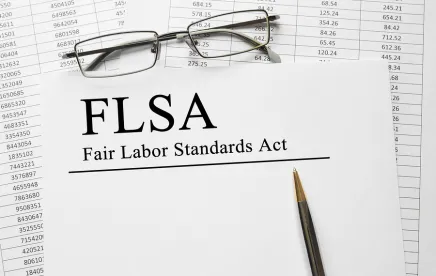In 2017, the Supreme Court decided Bristol-Myers Squibb Co. v. Superior Court of California, addressing due process concerns related to personal jurisdiction in the context of an action where the vast majority of plaintiffs were residents of states outside the jurisdiction where the plaintiffs filed the lawsuit. Bristol-Myers involved 678 individual product liability claims joined together in a California-state-court-based mass tort action. Nearly 600 of those claims belonged to nonresidents. To establish personal jurisdiction, the nonresidents relied on the similarity of their claims to the California plaintiffs’ claims.
The Supreme Court rejected that proposition, holding that resident/nonresident claim similarity “is an insufficient basis for jurisdiction.” The Court held that “specific jurisdiction is confined to adjudication of issues deriving from, or connected with, the very controversy that establishes jurisdiction.” The nonresident plaintiffs, according to the Court, failed to show “a connection between the forum and the[ir] specific claims,” and thus no specific jurisdiction existed over Bristol-Myers as to the out-of-state plaintiffs’ claims.
Since Bristol-Myers, employers defending Fair Labor Standards Act (FLSA) collective actions (where individuals bring claims for minimum wage or overtime violations “for and in behalf of” themselves and other “similarly situated” employees) have argued that Bristol-Myers requires a similar analysis for FLSA actions and should preclude out-of-state plaintiffs from participating in the proposed collective because the court lacks specific jurisdiction over their claims. Nearly 50 district courts have weighed in, and the courts have split almost evenly on the issue.
In August 2021, the Sixth Circuit became the first court of appeals to decide the issue, holding in Canaday v. The Anthem Companies, Inc. that courts may not exercise specific jurisdiction over FLSA claims “unrelated to the defendant’s conduct in the forum state.” The next day, the Eighth Circuit reached the same conclusion in Vallone v. CJS Solutions Group, LLC, affirming the district court’s exclusion of FLSA claims with no connection to the forum state because “[i]n order for a court to exercise specific jurisdiction over a claim, there must be an affiliation between the forum and the underlying controversy.”
Both Canaday and Vallone recognized that because the FLSA does not authorize nationwide service of process, Federal Rule of Civil Procedure 4(k) constrains effective service within the limits prescribed by a forum state’s long-arm statute and the Fourteenth Amendment’s Due Process Clause. Under the Due Process Clause, courts may assert general jurisdiction over a defendant in its home state (for a corporation, where it is incorporated and headquartered) or may assert specific jurisdiction over a defendant if a claim “arises out of or relates” to the defendant’s forum conduct. Because neither Canaday nor Vallone chose to file their lawsuits in the employer’s “home” state, only specific jurisdiction could potentially apply.
Both Canaday and Vallone contended that the FLSA’s collective action mechanism obviated the need for individual out-of-state plaintiffs to show a connection between the forum and their specific claims. The circuit courts disagreed, holding that Bristol-Myers requires that collective action “opt-in” plaintiffs individually establish that their claims are connected to the defendant’s forum conduct and, therefore, where “nonresident plaintiffs opt in to a putative collective action under the FLSA, a court may not exercise specific personal jurisdiction over claims unrelated to the defendant’s conduct in the forum state.”
For employers with presences in multiple states, Vallone and Canaday provide a potential means to limit the size and scope of FLSA collective actions. A pending decision in the First Circuit, Waters v. Day & Zimmermann, No. 20-1997, will either further strengthen employers’ position or provide support for FLSA plaintiffs and create a circuit split. Should the First Circuit disagree with the Sixth and Eighth Circuits, the applicability of Bristol-Myers to FLSA collective actions may well reach the Supreme Court.




 />i
/>i
